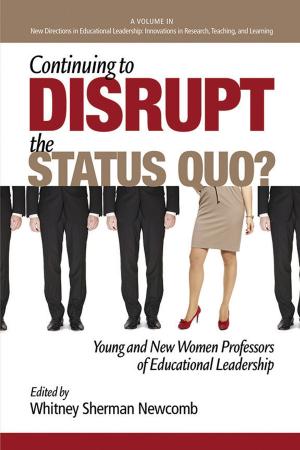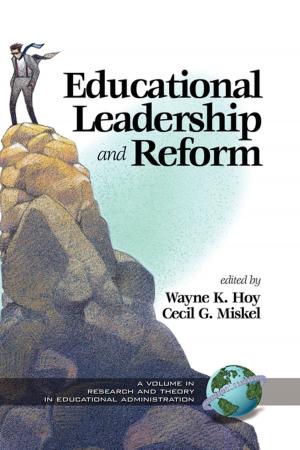Finding Meaning in Civically Engaged Scholarship
Personal Journeys, Professional Experiences
Nonfiction, Reference & Language, Education & Teaching, Higher Education| Author: | ISBN: | 9781607521853 | |
| Publisher: | Information Age Publishing | Publication: | June 1, 2009 |
| Imprint: | Information Age Publishing | Language: | English |
| Author: | |
| ISBN: | 9781607521853 |
| Publisher: | Information Age Publishing |
| Publication: | June 1, 2009 |
| Imprint: | Information Age Publishing |
| Language: | English |
The essays in this volume are a collection of reflective narratives, rather than traditional scholarly treatises. The book is divided into two parts. The first part describes our individual journeys as each of us found our way to civically engaged scholarship and came to see it as critical to our academic endeavors and identity. This section also highlights the interdisciplinary nature of our work as we discuss our journeys through our own disciplinary lenses. The second part presents detailed examples of our civic engagement, including servicelearning classes, community based research projects, and creation of community servicelearning spaces. These chapters provide a varied picture of the available avenues for civic engagement for students and faculty in a higher education setting. We provide sufficient details of our projects and classes to enable replication. The book concludes with a discussion of civic engagement as it is defined in the literature. The conclusion also discusses institutional factors that support and promote civic engagement as well as the importance of community involvement in service learning. Five common themes that emerged across the chapters are described. These themes include the use of service learning and civic engagement as an effective pedagogy, the relationship between civic engagement and political activism, the importance of partnership and collaboration, the meaning found in civic engagement, and the challenges of civically engaged work.
The essays in this volume are a collection of reflective narratives, rather than traditional scholarly treatises. The book is divided into two parts. The first part describes our individual journeys as each of us found our way to civically engaged scholarship and came to see it as critical to our academic endeavors and identity. This section also highlights the interdisciplinary nature of our work as we discuss our journeys through our own disciplinary lenses. The second part presents detailed examples of our civic engagement, including servicelearning classes, community based research projects, and creation of community servicelearning spaces. These chapters provide a varied picture of the available avenues for civic engagement for students and faculty in a higher education setting. We provide sufficient details of our projects and classes to enable replication. The book concludes with a discussion of civic engagement as it is defined in the literature. The conclusion also discusses institutional factors that support and promote civic engagement as well as the importance of community involvement in service learning. Five common themes that emerged across the chapters are described. These themes include the use of service learning and civic engagement as an effective pedagogy, the relationship between civic engagement and political activism, the importance of partnership and collaboration, the meaning found in civic engagement, and the challenges of civically engaged work.















